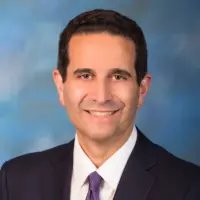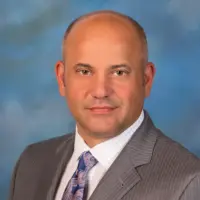About Merakey
Merakey Behavioral Health’s Coal Township site is located on West Spruce Street in Coal Township, Pennsylvania. They provide a wide range of behavioral health services, including outpatient and community-based support for substance use disorders, mental health and co-occurring disorders.
A Center of Excellence (COE) for Opioid Use Disorder
Their programs focus on providing you with both individual and group therapy, along with intensive outpatient programs to help you recover from alcohol, opioid, drug and behavioral addictions as well as co-occurring mental health challenges. It’s also good to know that they are an accredited Centers of Excellence (COE) for Opioid Use Disorder.
They offer medication-assisted treatment (MAT) for any withdrawal that you may be experiencing from narcotics through the administration of Methadone, Suboxone and Vivitrol.
Treatment for Other Overlapping Mental Health Challenges
In addition, they’ll assist with specific overlapping mental health challenges that you may be facing including anger management, depression, anxiety, impulse control and attention deficit disorder (ADD).
Allied with the Philadelphia Community Treatment Team Family Rehousing Program
I love that they work with the Philadelphia Community Treatment Team Family Rehousing Program to assist families who’ve experienced homelessness due to addiction. They provide education and community resources so they can get back to their families or families of choice.
Reviews for services are mostly positive, with clients mentioning supportive staff and comprehensive care. Others have mentioned receiving individualized attention and noted the professionalism from clinicians. Other clients have mentioned improvements in life stability and personal growth after attending programs.
Latest Reviews
Rehab Score
Gallery
Other Forms of Payment
Self-pay involves paying for treatment out of your own pocket. You can use savings or credit, get a personal loan, or receive help from family and friends to fund your treatment. If you don't have insurance or your insurance plan doesn't cover a specific program, self-pay can help ensure you still get the care you need.
Private insurance refers to any kind of healthcare coverage that isn't from the state or federal government. This includes individual and family plans offered by an employer or purchased from the Insurance Marketplace. Every plan will have different requirements and out of pocket costs so be sure to get the full details before you start treatment.
Medicaid is a state based program that helps lower-income individuals and families pay for healthcare. Medicaid covers addiction treatment so those enrolled can use their coverage to pay for rehab. When a program accepts Medicaid the client often pays very little or nothing out of their own pocket.
Addiction Treatments
Levels of Care
Outpatient Programs (OP) are for those seeking mental rehab or drug rehab, but who also stay at home every night. The main difference between outpatient treatment (OP) and intensive outpatient treatment (IOP) lies in the amount of hours the patient spends at the facility. Most of the time an outpatient program is designed for someone who has completed an inpatient stay and is looking to continue their growth in recovery. Outpatient is not meant to be the starting point, it is commonly referred to as aftercare.
Intensive Outpatient programs are for those who want or need a very structured treatment program but who also wish to live at home and continue with certain responsibilities (such as work or school). IOP substance abuse treatment programs vary in duration and intensity, and certain outpatient rehab centers will offer individualized treatment programs. The Intensive Outpatient Program gives patients the chance to participate in a structured treatment plan part-time while they transition back to home and work or other responsibilities.
Completing a drug or alcohol rehab program shouldn't spell the end of substance abuse treatment. Aftercare involves making a sustainable plan for recovery, including ongoing support. This can include sober living arrangements like halfway houses, career counseling, and setting a patient up with community programs like Alcoholics Anonymous (AA) or Narcotics Anonymous (NA).
Intervention services bring extensive experience to the planning and conducting of drug interventions in Pennsylvania. These experts can facilitate interventions in a sensitive manner that encourages positive outcomes. The goal of the intervention is to educate the individual about addiction and the consequences of their substance use and encourage them to get the treatment they need. Interventions can be effective with all types of drugs and alcohol addiction.
Programs
Adult rehab programs include therapies tailored to each client's specific needs, goals, and recovery progress. They are tailored to the specific challenges adult clients may face, including family and work pressures and commitments. From inpatient and residential treatment to various levels of outpatient services, there are many options available. Some facilities also help adults work through co-occurring conditions, like anxiety, that can accompany addiction.
Clinical Services
Group therapy sessions in Pennsylvania offer you a safe space when you're struggling with drug and alcohol addiction. You can openly discuss your challenges and the progress you're making in rehabilitation. Sharing this responsibility with others in your group fosters a commitment to sobriety and helps create strong bonds with your peers.
Family therapy teaches individual family members in Pennsylvania the benefits of collectively combating addiction. Therapists help individual members establish healthy boundaries between themselves and their loved one who is struggling with addiction. This helps improve emotional support systems and creates a bond so families work together to sustain long term recovery.
Personalized therapy sessions in Pennsylvania typically include a safe and nonjudgmental setting in which you can express your deepest emotions and feelings and explore the factors that have contributed to addiction. Therapists tailor the sessions to help you develop healthier thought patterns and behaviors, which improve your self control and build a foundation for your long term sobriety.
Couples therapy in Pennsylvania is typically short term treatment that focuses on building skills that lead to positive long term relationship changes. Sessions with the therapist may occur both jointly and individually.
Cognitive behavioral therapy (CBT) in Pennsylvania can be helpful to individuals who are experiencing substance use disorder and various mental health conditions. It helps you identify damaging thought and behavior patterns and replace them with healthy ones.
Motivational interviewing in Pennsylvania gives you the opportunity to share your perspective and explore your ideas and motivation for change. Your therapist will walk you through the four steps of engaging, focusing, evoking, and planning to empower you to make any desired changes in your life.
It is important to process the impact that traumatic experiences have had on your life. During trauma therapy, you and an experienced therapist confront these experiences and the emotional impact it is had. This helps to reduce your symptoms of stress and anxiety and improve your overall mental health and well being.
Staff

Joseph S. Martz
CEO

Ted Dallas
President & COO

Derrick Yacovelli
CFO

Leah Pason
Chief People Officer

Tom Morgan
Chief Information Officer

Brandon Fisher
Chief Strategy Officer

Jennifer Kane
Senior Vp of Quality and Compliance & Chief Compliance Officer

Rebecca Richwine
Senior Vice President of Children & Family Services
Contact Information
148 State Route 2026
Coal Township, PA 17866
